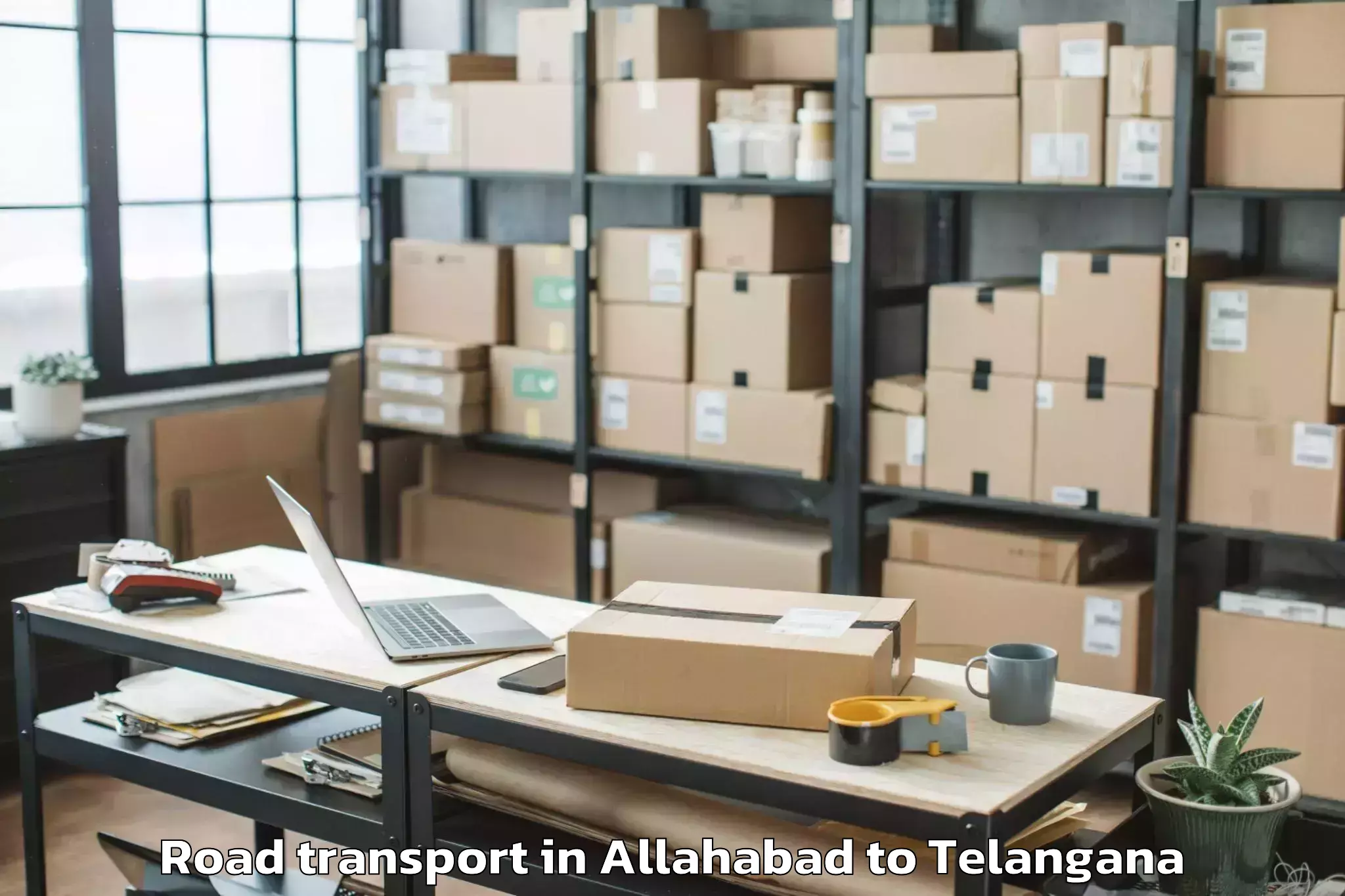Expert Allahabad to Mallapur Road Transport

Your trusted ally in goods transportation throughout India! Book the best services without any hassle from Allahabad To Mallapur, over a call. You can book various services like Transporters, Household Parcel, Packers and Movers, Freight transport solutions, Parcel Freight, etc
Allahabad To Mallapur Road Transport Service Details
| Charges: | From ₹932 for Direct Pincode & ₹1932 for ODA Pincode |
| Billing Weight: | As per weight, size, invoice value and pin codes. |
| Date: | April 29, 2024 (29-4-2024) |
| Destination State: | Telangana |
| Delivery Type: | Door Delivery |
| Area/Zone: | Prayagraj Division |
| Nearby Cities: | Prayagraj Road Transport for Mallial and Malkajgiri Road Transport in Prayagraj |
| Source Geo Coordinates: | 25.4358011, 81.846311 - (NorthEast L: 25.5102212, 81.9367217, SouthWest L: 25.2943063, 81.6664474) |
| Destination City: | Mallapur |
| Services: | High-capacity freight forwarding, Local freight solutions, Industrial shipping solutions, Rapid transport, Specialized package shipment, Cross-border transport services, Transport cost optimization, Nationwide freight logistics, City-to-city freight solutions, Citywide courier services |
| Source State: | Uttar Pradesh - UP |
| Current Status: | Serviceable |
| Source City: | Prayagraj |
| Consolidation: | In Sharing with Other Shipment |
| Other Cities: | Road Transport in Howrah to Mallapur and Road Transport in Navi Mumbai to Mallapur |
| Mode of Transport: | Road, Rail & Air |
Industrial Logistics Solutions: Efficient Goods Transport Services for Businesses
Industrial logistics solutions refer to the comprehensive services provided to businesses for the transportation of goods and materials. These solutions are designed to optimize supply chain management, ensuring efficient movement of products from one location to another. With a focus on streamlining operations, industrial logistics solutions utilize advanced technologies, such as automation and tracking systems, along with skilled professionals trained in warehousing, inventory management, and transportation planning. By leveraging these capabilities, businesses can achieve cost-effective and timely delivery of their products while minimizing risks associated with delays or damage. Implementing industrial logistics solutions enables companies to stay competitive in today's global marketplace by addressing complex challenges related to transportation and distribution effectively.
Regional Truckload Transport: Efficient and Reliable Goods Transportation Services
Regional truckload transport refers to the transportation of goods over short to medium distances within a specific region. This type of transport service is known for its efficiency, reliability, and cost-effectiveness. With regional truckload transport, businesses can easily move their goods from one location to another without the need for multiple stops or transfers along the way. Unlike less-than-truckload (LTL) shipping, where multiple shipments are combined into a single trailer, regional truckload transport involves dedicated trucks that carry full loads from point A to point B. This means faster delivery times and reduced handling risks since there is no need for additional sorting or transferring of goods. Whether it's delivering products to retail stores or transporting raw materials between manufacturing facilities within a particular region, utilizing regional truckload transport offers numerous benefits. These include streamlined logistics operations, improved supply chain management, increased control over inventory movement and flow, as well as lower overall costs compared to other shipping methods. By partnering with reputable freight carriers specializing in regional truckload services, businesses can ensure timely deliveries while optimizing their resources efficiently. The use of advanced tracking technology also enables shippers to have real-time visibility into their cargo's location throughout transit. In summary, opting for regional truckload transport helps businesses meet their time-sensitive transportation needs by providing efficient and reliable solutions tailored specifically for moving full loads across shorter distances within a particular geographic area.
Urban Transport Solutions for Efficient Goods Transport Services in India
Efficient goods transport services are crucial for the growth and development of urban areas in India. Urban transport solutions play a vital role in addressing the challenges posed by increasing traffic congestion, pollution, and limited infrastructure capacity. These solutions involve the implementation of innovative technologies such as intelligent transportation systems (ITS), which ensure smoother traffic flow through real-time monitoring and management. Additionally, initiatives like dedicated freight corridors, last-mile delivery optimization strategies, and integrated logistics hubs help streamline goods transportation within cities. By embracing these urban transport solutions, India can enhance its supply chain efficiency while reducing carbon emissions and promoting sustainable development throughout its urban landscape.
Large-Scale Road Transport for Goods: Efficient and Cost-Effective Delivery Solutions
In the realm of goods transport services, large-scale road transport plays a crucial role in delivering goods across vast distances. This method involves the use of trucks or lorries to transport significant quantities of cargo from one location to another. Large-scale road transport offers several advantages such as flexibility, accessibility, and cost-effectiveness. With well-maintained highways and improved logistics infrastructure in place, businesses can rely on this mode of transportation for timely deliveries. Additionally, advancements in technology have enhanced safety measures and communication systems within the industry, ensuring reliable tracking capabilities throughout the journey. By leveraging large-scale road transport for their logistical needs, companies can efficiently meet customer demands while optimizing costs associated with long-distance shipments.
High-Capacity Logistics Operations for Efficient Goods Transport Services
High-capacity logistics operations involve the efficient management and transportation of large volumes of goods. This includes strategic planning, coordination, and execution of complex supply chain activities to ensure timely delivery and cost-effective solutions. High-capacity logistics operations often rely on advanced technology, automation, and well-connected networks to streamline processes such as inventory management, warehousing, freight forwarding, and distribution. By leveraging economies of scale and optimization techniques, businesses can enhance their logistical capabilities to meet growing demands in a competitive market landscape while minimizing operational costs.
